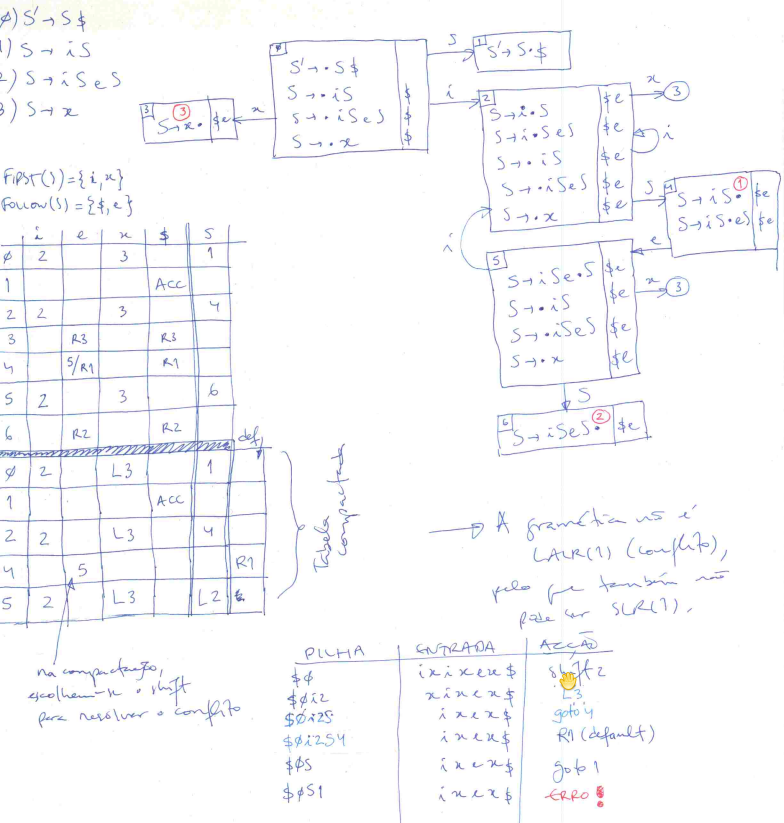Difference between revisions of "Bottom-Up Parsing/Exercise 10: LALR(1)"
From Wiki**3
< Bottom-Up Parsing
(→Solução) |
|||
| Line 2: | Line 2: | ||
Consider the following grammar, where S is the initial symbol and { e, i, x } is the set of terminal symbols: | Consider the following grammar, where S is the initial symbol and { e, i, x } is the set of terminal symbols: | ||
| − | <text> | + | <source lang="text"> |
S -> i S | i S e S | x | S -> i S | i S e S | x | ||
| − | </ | + | </source> |
# Compute the set of LALR(1) states for the grammar. Build the corresponding LALR(1) parse table. | # Compute the set of LALR(1) states for the grammar. Build the corresponding LALR(1) parse table. | ||
# Compact the parse table, eliminating and propagating reductions. | # Compact the parse table, eliminating and propagating reductions. | ||
Revision as of 13:26, 12 February 2019
Problema
Consider the following grammar, where S is the initial symbol and { e, i, x } is the set of terminal symbols:
S -> i S | i S e S | x
- Compute the set of LALR(1) states for the grammar. Build the corresponding LALR(1) parse table.
- Compact the parse table, eliminating and propagating reductions.
- Show the parsing process for input ixixex (including the actions/gotos and the input and stack states). In case of conflict, assume YACC's behavior.
- Is this an SLR(1) grammar? Why?
Solução
| [Expand] Solução completa |
|---|
